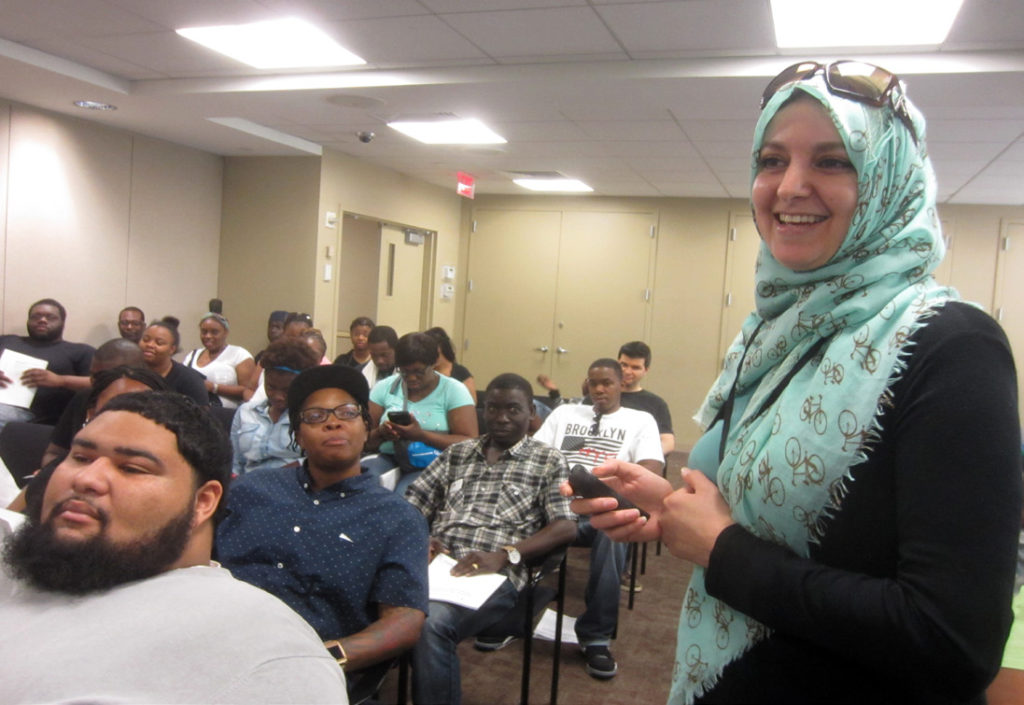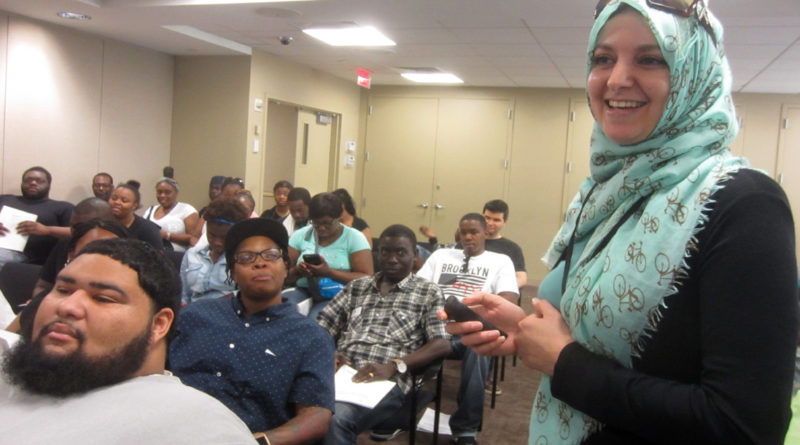Seasonal Employees Seek Summer Jobs and Permanent Opportunities

Some residents saw posters at their developments, others learned from resident associations, and still others found the good news on Facebook or Twitter: NYCHA was hiring again for its Seasonal Program. After a hiatus of two years from lack of funding, the Seasonal Program is again providing valuable job experience and income for housing development residents.
“We’re really excited about being able to bring people on board so developments can get the help they need and participants can get valuable work experience and a paycheck,” said Cherry McCutchen, deputy director in NYCHA’s Human Resources Department. “Residents could apply right at their development and were then processed in central office by our Human Resources staff.”
Reflecting NYCHA’s concern for the safety of all its employees, seasonal employees receive a day of safety training before they start the job. NYCHA safety trainer Eman Alawamleh conducted the first in a series of training sessions on July 13 at 90 Church Street, where many of the seasonals were anxious to participate.
“I heard that these jobs can lead to permanent positions, so I thought I’d give it a try because I’m an excellent worker,” said Tyrek Williams at the first safety session. A resident of Saratoga Village in Brooklyn, Mr. Williams plans on using his income for his children’s daily expenses and also hopes to save for a car.
Felicia Sanchez, a resident of Wise Towers in Manhattan, also hoped for a chance at a permanent position. “I’m happy to have an opportunity to come and provide for my family and hopefully be considered for more employment at NYCHA,” she said.
“I need some income to pay for college bills and books,” said Luis Rodriguez, who previously worked in retail. A resident of Taft Houses in Manhattan, Mr. Rodriguez attends Bronx Community College, where he is studying Criminal Justice.
When possible, seasonal employees are assigned to housing developments near where they live. Most jobs involve assisting caretakers maintaining development grounds or other areas. These jobs can present safety issues and require knowledge of potential hazards that were discussed at the safety session.
“People think that injuries will never happen to them, just other people. But if you do your job without following safety procedures, one day it can happen to you,” Ms. Alawamleh warned. Ms. Alawamleh discussed real job situations, such as a new employee who wants to impress her or his supervisor and is reluctant to raise safety concerns. “Safety is the responsibility of everyone,” Ms. Alawamleh said, emphasizing the serious consequences of job injuries for employees, their families, co-workers, and the Housing Authority.
Ms. Alawamleh also covered topics such as employees’ safety rights, occupational exposure to pathogens, personal protective equipment, and fire safety.
“Write my name and phone number in your manual,” she told NYCHA’s newest employees, “so you can contact me anytime for a question.”
More than 400 seasonal employees are now providing much needed assistance, so if you see a new face at your development dressed in NYCHA blues, say hello and thank them for helping to keep NYCHA looking good.







